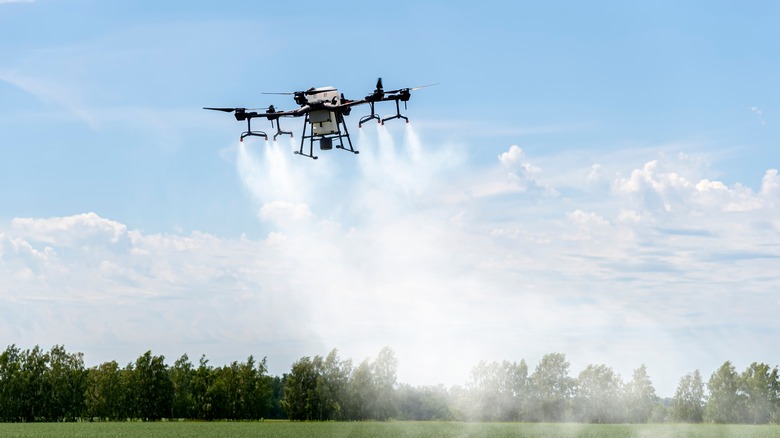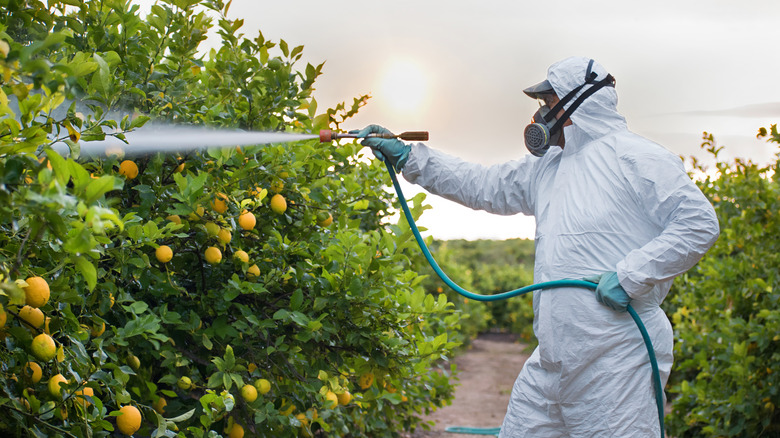The Heavily Used Pesticide Glyphosate That May Be Linked To Cancer
Like most innovations, modern agriculture has its own share of positives and negatives. Perhaps the most notable example of this is the use of pesticides. Having gained widespread use during and following World War II (via Fisher Scientific), synthetic and chemical pesticides have undoubtedly been useful in keeping America's crops free from the usual pests. But chemicals and artificial solutions in the farming of otherwise organic and natural foods have also affected the environment in various ways.
The Pesticide Action Network website reports that farm workers, especially migrant farm workers, are routinely exposed to heavy doses of pesticides and other chemicals while out in the field. As these workers receive little to no training about what exactly these chemicals are, it's only when symptoms of poisoning appear that they begin to understand what they are spraying. Symptoms of pesticide exposure, according to Californians for Pesticide Reform, include "irritation of the nose, throat, and skin causing burning, stinging and itching, rashes and blisters, nausea, and diarrhea."
With environmental tragedies like Love Canal in the 1970s (via The Environmental Protection Agency) and the report from US News that one in three people is exposed to a highly toxic and common weedkiller, it's no surprise that many groups seek to regulate or ban the use of pesticides in agriculture altogether. One particular pesticide, known as Glyphosate, is under extreme scrutiny, as it's believed by some to be linked to certain types of cancer.
Is Glyphosate really linked to cancer?
According to NBC News, Glyphosate isn't a relatively new invention, it's been in use for 50 years. The pesticide is used mostly in and around the Midwest and Colorado, along with parts of the South. In fact, weedkillers containing the chemical are used in "nearly half" (or so the USDA reports) of the nation's corn and cotton crops. If this is the case, this would mean that an enormous majority of American citizens are constantly exposed to a chemical that can cause cancer, wouldn't it?
The Environmental Protection Agency, however, disagrees. According to its reports, glyphosate poses "no risks of concern to human health," when used accordingly and has no known links to cancer. The EPA even concludes that, although there are some risks when using glyphosate, the benefits of using it outweigh any concerns. Although this may sound like good news, some aren't so willing to agree with the EPA's report.
Cancer Center, for example, details that glyphosate is much more present in our environment than the EPA says, noting that it can be found in anything from oatmeal to breast milk. The World Health Organization also reports that the chemical is "probably carcinogenic to humans." So the jury appears to be still out on this one. It may be best to focus on buying products and produce that are pesticide-free. Even in glyphosate doesn't cause cancer, it's always good to be on the safe side.

